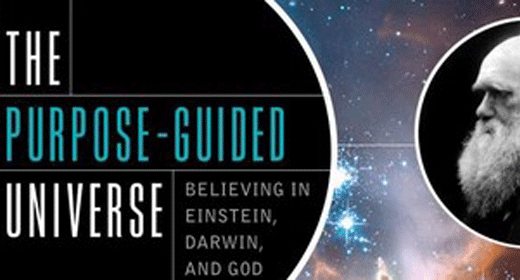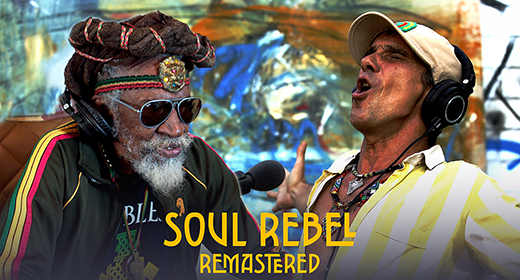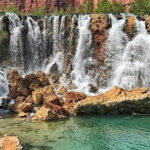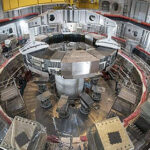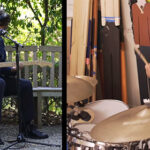by Faena Aleph: One day, science encountered wisdom in a chance meeting between Tesla and the yogi Swami Vivekananda…
In an incredible moment of lucidity, it’s just possible that in the India of the Vedas everything concerning the nature of the world and reality had already been discovered. Consequently, everything said since then is but a commentary on the wisdom contained within those sacred texts. Does this hypothesis seem extravagant?
In 1896, actress Sarah Bernhardt starred in a play called Iziel. In the words of one attendee, it was a “French reading of the life of the Buddha.” Roughly speaking, the play was developed around a courtesan, Iziel, who attempted to seduce the Buddha while he meditated at the foot of the legendary fig tree where he achieved enlightenment. The Buddha took advantage of Iziel’s advances to preach about the world’s vanity. The play was one of the many Western expressions of interest in the doctrines of the East and specifically for the Vedanta, one of the six Hindu schools of philosophy based on the Vedas.
At least that’s how Swami Vivekananda understood it. One night in February of the same year he went to see a performance of Iziel. Vivekananda was already a yogi recognized for his knowledge of the sacred texts and especially for his having been the favorite student of Sri Ramakrishna Paramahamsa, one of the 19th-century’s most remarkable yogis. Ramakrishna had several mystical experiences and was considered an incarnation of the Supreme Brahman. Within this context, Vivekananda was a decisive link between his teacher and the West. Although he’d been born and trained in Calcutta, since his youth, his knowledge of Western culture was as vast as his interest in Vedantic doctrine. That combination, along with Ramakrishna’s tutelage, made Vivekananda an enthusiastic promoter of Vedantic wisdom outside of India.
Sarah Bernhardt knew all of this, or at least, she knew who Swami Vivekananda was. On seeing him among the audience in the theater that night, she immediately arranged a meeting with him at the end of the performance.
Everything seemed to happen by chance. But sometimes, coincidences themselves are suspended within the universe, and for just a moment, they altogether cease to exist.
The meeting after the play was also to include Nikola Tesla. At 39 years old, he’d already invented the AC motor and developed and patented other electrical inventions, and thus received the income necessary to found the Nikola Tesla Company. At this extremely fertile time in his own life, Tesla was excited not only by what he’d achieved but by the new fields of research that his own discoveries had opened up.
During the evening, Vivekananda and Tesla met and began to speak. To the surprise of both of them, the conversation turned to topics of mutual interest. For Vivekananda, because they covered the very substance of life, and for Tesla, because he unexpectedly found inspiration and confirmation of some of the ideas he could then only barely perceive.
Among other things, Vivekananda and Tesla discussed the notions of prâna, âkâsha, and kalpas, three elementary concepts of the Vedantic doctrine. Respectively, these can be understood as vital energy, the ether, and the idea of the aeon. Prâna might be understood as a unit of energy, âkâsha as matter, and kalpas as time. According to Vivekananda, on that very night, Tesla assured him that ideas of such a long tradition in Hinduism could find an echo in modern Western science. On the other hand, Tesla considered himself capable of mathematically demonstrating that force and material could both be expressed in terms of energy. This notion is, in turn, very close to Hindu religious thought. “In that case,” Swami Vivekananda later wrote in a letter outlining the meeting, “the Vedantic cosmology will be placed on the surest of foundations.”


“If you want to find the secrets of the universe, think in terms of energy, frequency, and vibration,” wrote the inventor. One might wonder if, at the moment he realized this universal maxim, he hadn’t been experiencing the rapture of a yogi, or a mystic.






